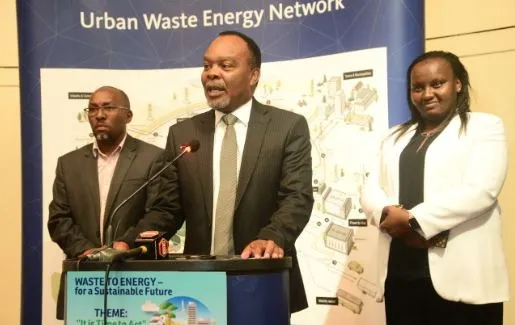advertisement
Swiss Waste Management Tech Provider Launches in Kenya

This could be Kenya’s time to start incorporating technology into waste management as Hitachi Zosen Inova (HZI) has revealed its entrance into the Kenyan market. HZI is a waste management technology provider based in Zurich.
The company is setting up shop in the country in collaboration with Sintmond Group Limited. According to a statement that announced the move, the company will see the development of local waste management plants as a long-term solution for recycling waste into Electricity and Fuel.
In Kenya, waste management is important to development in the country as it was devolved in the Kenya constitution. Specifically, county governments have the lead role in delivering sustainable waste management services.
advertisement
Despite this, there is still room for improvement in managing waste. So far, we have seen Nairobi County plans to set up its first garbage-powered electricity plant in Ruai. The county produces more than 5000 metric tons of waste per day, most of it going to the Dandora dumpsite that has been full for years. The site was officially opened in 1975 and was considered full back in 2001
Just like Nairobi, the rest of the country and continent is not recycling enough waste. Perhaps it is time for Africa to look at technological solutions for the waste problem that will one day hit the continent.
“Africa is currently recycling only 4 per cent of its waste, a far cry from the African Union vision that African cities will be recycling at least 50 per cent of the waste they generate by 2023. The priority for Africa is to address the public health imperative, by ensuring that all citizens have access to proper waste management services. Comprehensive, reliable, and regular city-cleansing and controlled disposal of waste is the foundation of every integrated waste management system,” says HZI Emerging Markets Senior Sales Director Urs Altenburger.
advertisement
Kenya generates an estimated 22,000 tons of waste per day translating to 8 million tons annually. 40 per cent of this waste is generated in urban areas; with urbanization growing by 10 per cent annually, the country’s urban population will be generating an estimated 5.5million tons of waste every year by 2030.
It is estimated that 60 to 70 percent of waste generated is organic, 20 per cent plastic, 10 per cent paper, 1 per cent medical waste, and 2 per cent metal.
“We are ready to help counties deal with their waste management, through our Waste-to-Energy (WtE) technologies. Waste being one of the contributors to greenhouse gases affects climate change. Improper management of waste disposal ultimately hinders the achievement of sustainable development,” said Sintmond Group Limited, CEO Richmond Gatu.